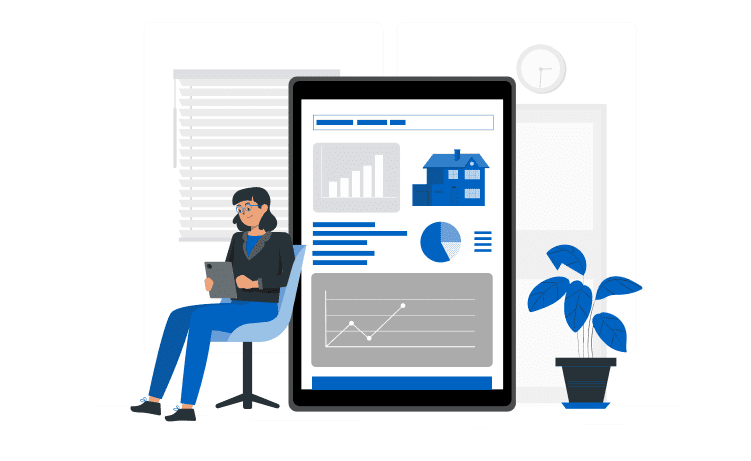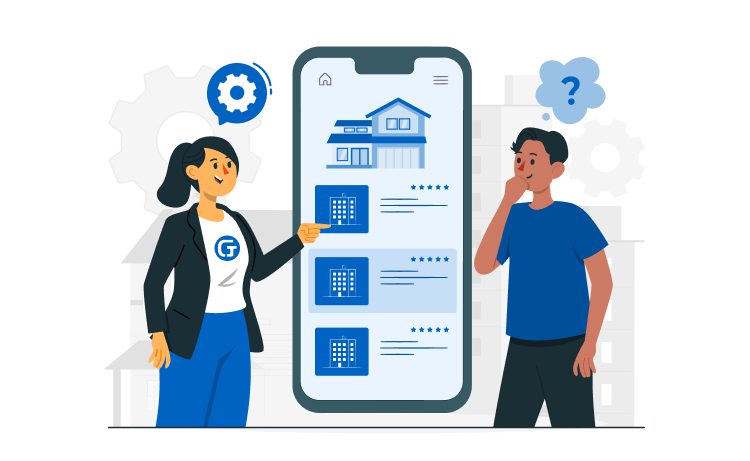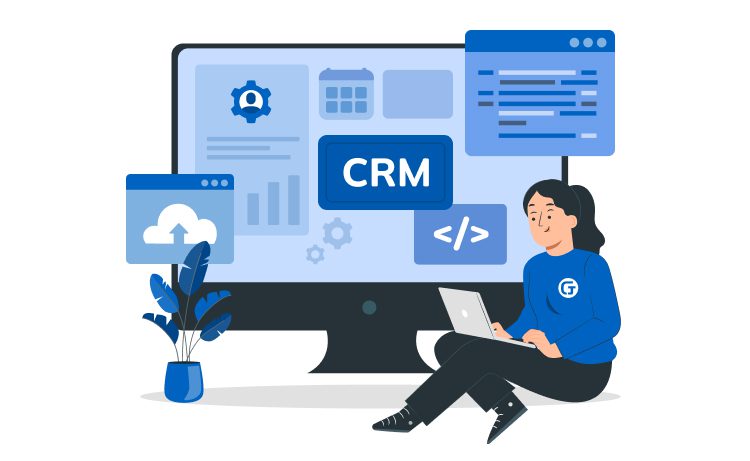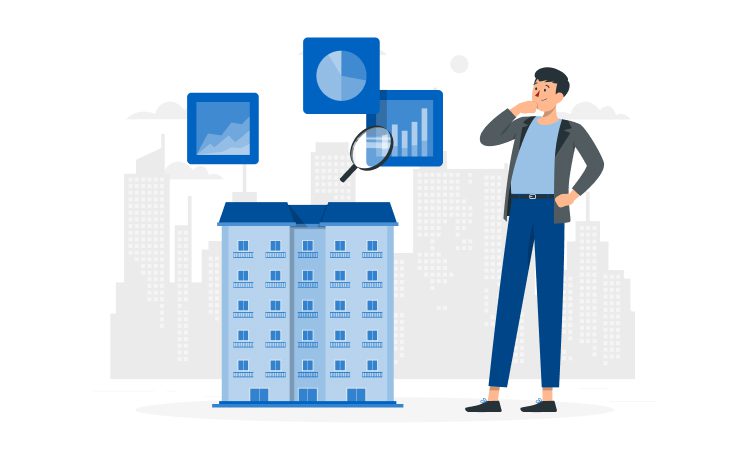
Top 3 Tech Solutions for Better Commercial Property Appraisals (GIS maps, CRMs, analytics tools)



Identifying the best property value has always been a difficult task in commercial real estate. It commonly involves a lengthy procedure of evaluating past owners’ documentation records, object documents, and so forth.
It has now got much more challenging as a result of increased competition and market expansion.
For starters, substantially more data has been acquired across several divisions of the industry. And the more information there is, the more difficult it is to sort through it, let alone uncover valuable insights.
Data science and analytics can assist in providing the most accurate commercial property appraisals in this situation. Then, once listed, setting a suitable price for the property is a critical step toward a successful transaction.
Content
Notwithstanding the limitations of changeable commercial real estate markets, new technologies enable brokers and appraisers to evaluate various listings and cover any slice of the market globally.
As a result, agents receive accurate and appropriate property appraisals.
Real estate data analysis allows for a more in-depth look at the current market average for a specific property type, region, and so on. Data-driven solutions also provide an accurate estimate because the information is gathered from hundreds, if not thousands, of different sources, revealing a complete picture of the market’s current position.
This allows property transactions to be completed considerably more quickly and with fewer hazards. This improvement in decision-making benefits both investors and tenants since greater openness and accuracy during property navigation results in a speedier data-to-decision process.
Data analytics models can calculate prices per square meter with a 90% accuracy rate, according to McKinsey.

These growing trends will necessitate open data platforms and vast infrastructures to provide all players with a comprehensive picture, with even more data collected.
For example, various commercial real estate analysis models assist real estate brokers. In addition, investors gain insights from property data from commercial estate management businesses, brokers, mortgage lenders, security companies, and federal institutions.
Geographic information systems, or GIS, are interactive 3D maps that display location data. When it comes to property evaluations, these comprehensive tools are the primary source of information for brokers and appraisers.
GIS maps can include any type of information and layers, such as property ownership, zoning floodplain areas, value per acre, census data, population density, and other land surface data.
Previously, real estate brokers would spend hours researching various property information forms to provide a relevant deal. However, the lack of detail to put into the material is incredibly frustrating for an appraiser attempting to offer an appropriate valuation.
Brokers and agents must gather all the information independently because there is no centralized database, which takes hours and hours of effort. GIS software simplifies the appraiser’s job by combining this information into an intuitive, polished, interactive map.
Industry professionals can save time and money by utilizing pre-collected data via visualized interactive maps with real estate location tools.
Furthermore, GIS software represents a distinct advantage over competitors for commercial real estate enterprises, because a full map allows for more accurate client targeting and provides significant insights into property ownership and location filters.
Additionally, GIS solutions help agents close CRE deals faster with the following benefits:
The primary benefit of interactive 3D maps is that users may easily filter data by desired parameters, rather than navigate through layers of different information sources.
A lot of property data can be accessed on the Internet by manual search, but it takes excessive time to collect, sort, and compare it in the required manner. GIS maps manage all research and provide access to information that would otherwise be impossible to obtain through human search.
Complete information updated in real-time is one huge benefit that GIS maps for real estate professionals provide. Previously, agents had to manually scan through information updates and compile layers of data to spot patterns; now, GIS software does it in real-time.
Real estate brokers can also sort and refine location information using various geographical data filters based on any criteria they wish.
Several types and levels of information are required for only one area; when brokers must evaluate multiple areas, the situation becomes considerably more convoluted.
Cloud-based infrastructure is a tool for centralizing and correctly visualizing the volume of property information.
Not only brokers and real estate agents benefit from data visualization and online storage. It is an appealing tool for giving vital information to customers, whether real estate investors or buyers. When customers need to view infrastructure and the object’s vicinity to neighboring schools, office hubs, retail clusters, and so on, GIS visualization comes in handy.
As a vital informational resource for real estate professionals, GIS maps are essential instruments for competition research and market analysis. For example, the price of a building is directly affected by interactive maps that display real-time data updates.
Furthermore, GIS maps, such as population density, provide agents with a glimpse of where their target audience lives, making selling property a quicker and more efficient process.
Interactive 3D location maps aid the process of evaluating a property. As a result, real estate brokers can conduct quick but thorough research on a particular area and compare prices in other regions with similar specifications.
Most significantly, GIS systems allow brokers and real estate professionals to more precisely evaluate property prices and make better business deals by decreasing the resources and effort spent on collecting geographical information.
Because of the comprehensive integration possibilities, property research becomes a quick and consistent process. Users can, for example, flip data layers on and off and search for specific attributes to aid in study.
Many GIS solutions additionally provide links to particular government websites or rules to help users get the information they need.
Compiling assessments requires agents to work in various business areas, including marketing, finance, operations, construction, communication, and so on. Therefore, the amount of software tools and systems utilized to handle various areas is difficult to quantify.
GIS software, as a centralization tool, should have as many connections with external systems as possible. Seamless integration promotes data sharing, which simplifies cooperation and improves the entire project management flow.
Intelligent software tools are an absolute must-have in today’s business environment, regardless of the scale and complexity of commercial real estate projects. However, with so many possibilities on the market, deciding between in-house software development and a ready solution can be difficult.
However, to give actual outcomes to the organization, either solution must meet several primary conditions. Sophisticated project management software for real estate is designed to address all potential issues that may arise during a project’s life cycle.
Even though there are numerous parts to this process, there are a few critical areas where CRE solutions give unrivaled benefits to real estate professionals.
In the real estate industry, data is the new gold. Around 70% of the world’s largest corporations currently spend a quarter of their budget on data analytics, and the real estate business is no different. As a result, big data has become a powerful tool for the commercial real estate market in recent years.
One of the critical applications of CRE project management software is integrated with all other systems and technologies to create a consolidated and accessible data landscape. Furthermore, this program offers real-time analytics and data sharing by collecting information from multiple sources.
Transactional data, historical data, customer records, paperwork and permits, GIS data, and so on are all examples of information.
Aside from simply centralizing this data, effective CRE management software can analyze, visualize, and organize layers of data and provide reports and forecasts based on it. Furthermore, it includes data architecture for sorting out valuable insights and categorizing information.
Multiple parties, brokers, subcontractors, vendors, and customers are involved in a single commercial real estate project. As a result, there are numerous communication routes and participants, making a centralized solution for messages, calls, and emails across the project essential.
A comprehensive cloud-based CRE project management solution keeps communication in one stream, making it transparent and efficient.
Streamlined communication among project stakeholders speeds up the management process by allowing all participants to converse in real-time and receive responses rapidly, reducing the possibility of errors and bottlenecks.
It’s critical to keep track of all tabs and tasks during the project. This is where automation comes in: project management software should eliminate as many manual administrative activities as feasible while optimizing the workflow.
Reminders, deadlines, follow-up responses, automated notifications, and ideas all assist real estate agents and brokers in staying in the loop and meeting deadlines on time.
The real estate sector is flooded with various documents, and proper document management is a well-known source of frustration for CRE project managers. Agents must collect records from a variety of third parties, and keeping track of everything is difficult.
Rather than constantly contacting tenants or contractors to obtain documents, project management software automates this process with default inquiries and follow-ups. In this manner, agents may receive paperwork on time and have it properly managed and stored.
Glorium is a software development firm that specializes in complex technological solutions for the real estate industry.
Glorium has over ten years of industry experience and works with startups to help them get to market quickly and stay ahead of the competition by providing exceptional service and customized solutions.
We can assist you in developing commercial property appraisal solutions for your real estate clients. In addition, Glorium can provide advanced software development based on extensive experience with tech solutions for commercial real estate.
Learn more about our real estate software and application development solutions today!









| Cookie | Duration | Description |
|---|---|---|
| cookielawinfo-checkbox-analytics | 11 months | This cookie is set by GDPR Cookie Consent plugin. The cookie is used to store the user consent for the cookies in the category "Analytics". |
| cookielawinfo-checkbox-functional | 11 months | The cookie is set by GDPR cookie consent to record the user consent for the cookies in the category "Functional". |
| cookielawinfo-checkbox-necessary | 11 months | This cookie is set by GDPR Cookie Consent plugin. The cookies is used to store the user consent for the cookies in the category "Necessary". |
| cookielawinfo-checkbox-others | 11 months | This cookie is set by GDPR Cookie Consent plugin. The cookie is used to store the user consent for the cookies in the category "Other. |
| cookielawinfo-checkbox-performance | 11 months | This cookie is set by GDPR Cookie Consent plugin. The cookie is used to store the user consent for the cookies in the category "Performance". |
| viewed_cookie_policy | 11 months | The cookie is set by the GDPR Cookie Consent plugin and is used to store whether or not user has consented to the use of cookies. It does not store any personal data. |